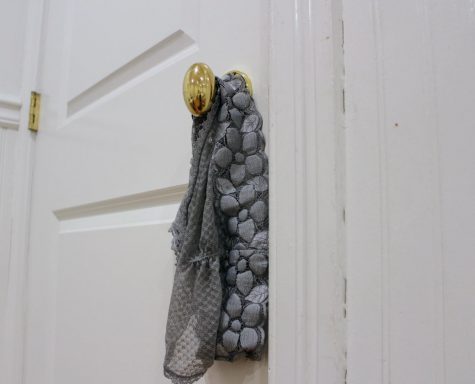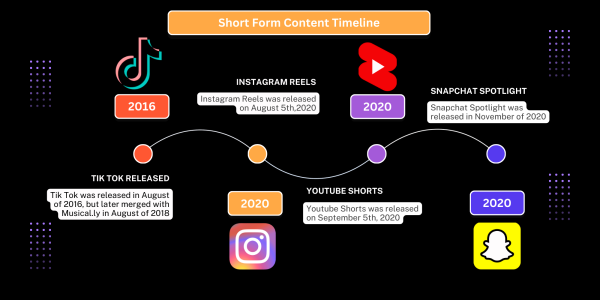Modern High School Romance: The Hookup Culture
Note: Due to the sensitive nature of the topic, most student names are not included in the article to protect their privacy; these students’ names have been replaced with pseudonyms for the readers’ ease.
In the poorly lit basement of a high schooler’s house, music echoes against the walls. Groups of people can be seen scattered about talking and drinking. A party is in full swing and while everyone else is busy socializing, two people flirt in a separate corner. Eventually, one grabs the other’s hand, leading them to an empty room upstairs.
While this is just one scenario of hooking up, its culture is very real and it is here — talked about through Snapchat, acted on at parties and hangouts — taking the place of high school relationships and providing a way for high schoolers to connect with others.
What is it and What Does it Mean?
While there are many definitions for what hooking up actually entails, the term has more to do with the casual nature of the relationship rather than how far things go.
“A hookup itself is with someone that you are not dating or don’t have a relationship with. Then, it wouldn’t be called a hookup,” said Daisy, a junior.
However, in high school, it seems that, for the most part, students tend to think of making out when they hear the term.
“A lot of people have different definitions of what a hookup is,” said Theo, a senior. “But I think generally, in high school terms, it’s just making out. Yeah, that would be considered to be a hookup for a lot of people.”
The significance of a hookup, much like the definition, is subjective. While the overall feeling of it is casual, and the situation will obviously vary depending on the people, place, and circumstance, hookups are more significant for some due to their intimate nature.
“I mean, it’s not like I go hooking up with every guy, but I’ve had the occasional hookup and it always ends up meaning so much more to me than it ever did to them. In the end, it’s very hard to find a case where both people are like, ‘Okay yeah, cool, bye,’” said Daisy. “It always means more to one person than it does to the other. So, it’s always significant to me, but it’s just a chance whether it’s reciprocated [or not].”
Differences in Perspectives
While at a larger societal level there seems to be shift towards casual relationships, many people still choose not to engage in this aspect of high school.
“I think [hooking up] makes things more complicated and it adds a whole other layer to something that you have to deal with, and I think that especially when you’re young, it’s hard to know that everyone that’s in the situation is comfortable and knows what’s going on and is totally educated and understands both themselves and the other person well enough,” said senior Claire Mills.
Some, on the other hand, prefer the casual, laid-back nature of not being in a relationship. This preference can be for a number of reasons, but one widely echoed sentiment was the simplicity of not exclusively committing to another person.
“Hooking up is easier; there is a lack of that clingy-ness…As soon as you [use] the word ‘dating,’ you’re stuck with them. Hooking up is much less commitment, ” said Libby, a sophomore.
Libby, however, chooses not to hookup with others anymore, due to the inevitability of other students in her grade hearing about it.
“To me, relationships [of any kind] are meant to be between you and the other person, not you and your entire grade. So it is a respect thing between you and the other person. I don’t like other people finding out,” she said.
While sometimes hooking up can lead to a relationship, whether that be a “thing,” dating, or friends with benefits, there are times when hooking up does remain just that.
“I think if you try to make every hookup a relationship, it gets too hard. I don’t think it has to be that way. Hookups in high school today are just built into the culture. Whether it’s good or bad, it’s just how it is,” said Theo.
Transition to Casual Relationships
For some high schoolers, the label of “dating” can be too much commitment, and just hooking up may also be too relaxed for some, too. Instead, they opt for a more casual relationship, often coined a “thing.”
As the students interviewed described it, a “thing” is “so hard to explain” but involves both people knowing “that they’re into each other.” Theo described it as “if you hang out, hookup and don’t want to be with other people and they don’t want you to be with other people.”
Mills has never dated anyone but reported that she has had a “thing” with someone, which is what she prefers.
“I haven’t had anyone that I’m full-on dating. I think the thing that is more common is when you have a ‘thing’ with someone for a while. It’s a lot more casual and it’s not a big commitment, which I like that better. I kinda don’t want to get into actual dating because that’s a whole other level of time and commitment. I don’t really see high school relationships lasting, especially for me [because] I know where I want to go with my life, so it just always felt kind of pointless to make something serious happen,” Mills stated.
Another factor that often prevents people from dating is the fear of commitment.
“Being single is a privilege… to be able to do what they want and literally ‘do’ whoever they want. Calling someone your boyfriend and calling someone your girlfriend is such a big step, and I feel like people are just scared of that,” Daisy stated.
While Daisy acknowledged that it is a privilege for her to be single, she also revealed that she would prefer to be in a relationship with the person she is hooking up with.
“My problem is that I would love so much to have a person. So, I feel like I’m not credible to talk about it because I haven’t experienced it. But I feel like I would like [hooking up] so much more if I had someone to do that business with that loved me and cared for me instead of just a ‘yo, you up?’ But I mean hooking up isn’t bad. I enjoy it,” Daisy stated.
Slut Shaming in the Hookup Culture
As we contacted sources to interview for this story, one theme that we noticed was that boys were often more reluctant to talk, which is why only one boy was interviewed throughout this process. Additionally, some girls were offended by the emails we sent out as they felt they were being “called out” or “shamed.” These reactions may be a factor of the sexism ingrained within the hookup culture.
While both girls and guys hook up, sometimes there is a negative stigma and slut shaming associated with a girl who chooses to hook up.
As Merriam-Webster Dictionary describes it, slut shaming is “the action or fact of stigmatizing a woman for engaging in behavior judged to be promiscuous or sexually provocative.”
Out of all the students interviewed, everyone stated that they were aware of sexism in the hookup culture and also viewed it as a problem.
“We have this ideology that girls are supposed to be proper and they’re supposed to save it and keep an Aspirin between their [knees]…there is so much slut shaming that it’s just so much easier to attack a girl than it is to attack a guy because ‘boys will be boys,’ and I hate that because girls will be girls and we’ll do what we want,” Daisy stated.
Mills believes that one of the factors that contributes to sexism in the hookup culture is that hooking up is often talked about through the girl’s perspective.
After there’s been a party, “people don’t talk about which guy hooked up with who, they more just talk about it from the girls’ end. So I think it’s the kind of thing that girls like talking about more than guys, but I definitely think there’s a silly feeling that it’s okay for guys to [hook up] but for girls, it’s more their responsibility to be the one to stop [the hookup], which is kind of ridiculous because both people are part of it,” Mills stated.
Many students, including Daisy, believe that slut shaming is a problem and can be harmful to a girl’s mentality. Daisy specifically believes that people should instead focus on empowering other girls.
“If you wanna hook up with a guy, then hook up with a guy. If you wanna hook up with three guys, then hook up with three guys. I don’t care,” she said. “That’s what we should be telling [girls] because in the end, it’s their body, and if we have other people slut shaming them or being condescending to them because they want to act on it and fulfill their needs that everyone has… that’s just so unfair because it’s not their body; it’s ours. Why would someone else have a right to tell us what we should do and what we shouldn’t do with it if it’s yours?” Daisy stated.
Although Theo is a boy and hasn’t directly been affected by slut shaming, he acknowledges that it is a prevalent problem that has been ingrained in our society.
“There is more to be associated with a girl hooking up with a guy than a guy hooking up with a girl,” he said. “It’s the culture today. It’s not right, but for so long, it’s been that way and it hasn’t really broken up yet. It’s a problem.”










![Senior River Thompson joins the Jazz Ensemble by singing “That Old Black Magic” by Mercer and Arlen Arr. Mark Taylor, along with senior Annie Brody on guitar and junior Thomas Teixeira on bass, earning big applause. “[The concert had] great energy because it's the last [jazz concert] of the year,” Brody said.](https://www.lhsdoi.com/wp-content/uploads/2025/04/Eight-That-Old-Black-Magic-600x400.jpg)
![Mr. Abullh Ali, manager/assistant, helps open Queen Yemeni Coffee in downtown Libertyville at 606 North Milwaukee Ave. With the help of employees such as manager and LHS senior Yousef Taha, they are able to bring the Yemeni and Ethiopian culture to Libertyville by using their Queen spices, cinnamon and cardamom in their drinks such as Adani Chai, which is inspired by Sheda, the Queen of Yemen and Ethiopia. “The history of our coffee [is] a long history and we believe that Yemen and Ethiopia started the coffee and we are bringing something unique to the community,” Mr. Ali said.](https://www.lhsdoi.com/wp-content/uploads/2025/04/Photo-1-600x400.jpg)


